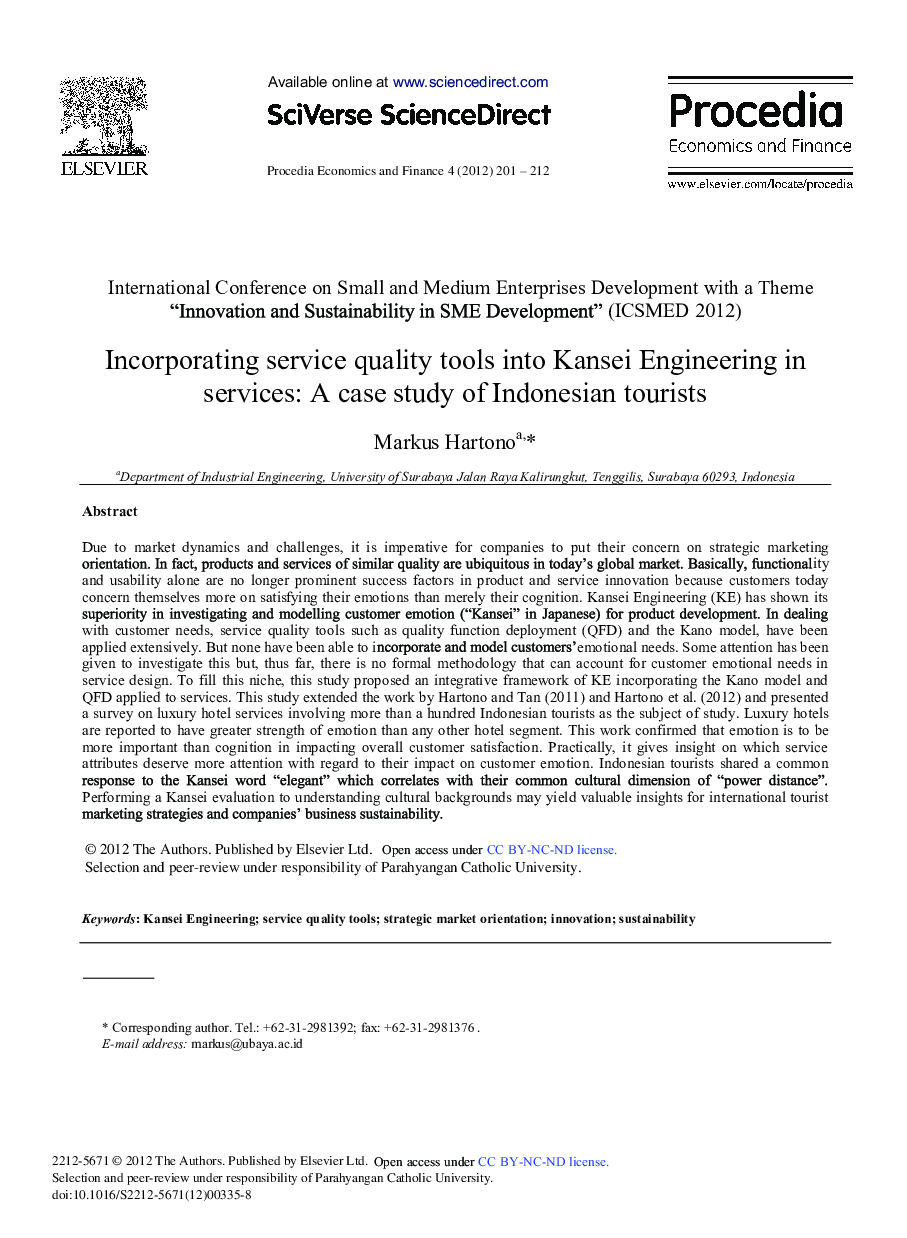| کد مقاله | کد نشریه | سال انتشار | مقاله انگلیسی | نسخه تمام متن |
|---|---|---|---|---|
| 982023 | 1480397 | 2012 | 12 صفحه PDF | دانلود رایگان |

Due to market dynamics and challenges, it is imperative for companies to put their concern on strategic marketing orientation. In fact, products and services of similar quality are ubiquitous in today's global market. Basically, functionality and usability alone are no longer prominent success factors in product and service innovation because customers today concern themselves more on satisfying their emotions than merely their cognition. Kansei Engineering (KE) has shown its superiority in investigating and modelling customer emotion (“Kansei” in Japanese) for product development. In dealing with customer needs, service quality tools such as quality function deployment (QFD) and the Kano model, have been applied extensively. But none have been able to incorporate and model customers’emotional needs. Some attention has been given to investigate this but, thus far, there is no formal methodology that can account for customer emotional needs in service design. To fill this niche, this study proposed an integrative framework of KE incorporating the Kano model and QFD applied to services. This study extended the work by Hartono and Tan (2011), and Hartono et al. (2012) and presented a survey on luxury hotel services involving more than a hundred Indonesian tourists as the subject of study. Luxury hotels are reported to have greater strength of emotion than any other hotel segment. This work confirmed that emotion is to be more important than cognition in impacting overall customer satisfaction. Practically, it gives insight on which service attributes deserve more attention with regard to their impact on customer emotion. Indonesian tourists shared a common response to the Kansei word “elegant” which correlates with their common cultural dimension of “power distance”. Performing a Kansei evaluation to understanding cultural backgrounds may yield valuable insights for international tourist marketing strategies and companies’ business sustainability.
Journal: Procedia Economics and Finance - Volume 4, 2012, Pages 201-212